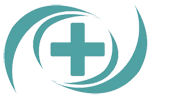Do you also have varicose veins? Someone has told you that these are symptoms of cancer, and you have been unable to sleep since then. No need to worry because it’s not true.
Varicose veins are often associated with cancer symptoms, but they are not. These are often related because cancer treatment can worsen this condition, but only if your veins are previously affected. So no more worries; you are safe.
This article will cover everything you need to know about these two in detail. Furthermore, we will also learn about risk factors and treatment options to help you get rid of this condition. Let’s start with a quick introduction to varicose veins.
What Are Varicose Veins?
Varicose veins are the swollen and twisted veins that commonly occur in the legs and feet. These are also known as varicosities. These usually happen due to the damage or weakening of valves. It pools your blood and swells your veins. There are several factors that may cause it. We will take a look at those risk factors in depth below.
Symptoms Of Varicose Veins
The following are the common symptoms of varicosities: If these symptoms sound familiar, then you are probably affected by this condition as well.
Write the symptoms of varicose veins in the form of a list. Don’t explain the symptoms. Just write their names.
- Visible, enlarged veins
- Swelling in the legs
- Aching or throbbing pain
- Heaviness in the legs
- Itching around veins
- Muscle cramps in the legs
- Discoloration of the skin around veins
- Restless legs
- Skin ulcers near the ankles
- Bleeding from varicose veins
Seek immediate medical help if you notice any severe symptoms.
Risk Factors Associated With Varicose Veins
Varicose veins are not a life-threatening problem and can happen to anyone, just like any other disease. But some people are more exposed to it as compared to others. Let’s take a look at some risk factors associated with it.
- Age: The first factor we have is age. Older people have a higher risk of getting affected as compared to young ones. It is because your valves and vein walls stiffen with age.
- Being overweight: The next risk factor is your weight. Being overweight can also lead to it due to unnecessary pressure on blood vessels.
- Gender: Studies have also linked it with gender as well. It is because of certain female hormones. These increase the risk of its development among them.
- Family history: Varicose veins can also be transferred hereditarily in some cases.
- General health: Your general health can also affect this condition. Some medical conditions, like severe constipation, may lead to weak or damaged valves.
- Lifestyle: The next one on our list is lifestyle choices. Sitting or standing for long periods of time may also cause it. Furthermore, smoking or wearing tight waistbands and other restrictive clothing may also cause the development of varicose veins.
Are Varicose Veins Cancer Symptoms?
No varicose veins are included in the cancer symptoms. Then why are these both associated with each other? It is because of the cancer treatments. Some of the cancer treatments can affect your vascular system. So if you already have varicose veins, then cancer treatment may worsen them.
So if you don’t have cancer, then there is no reason for you to worry about varicose veins. But varicose veins can also affect your wellbeing, so you need to treat yourself. Let’s take a look at some treatment options.
Treatment Options For Varicose Veins
There are multiple treatment options for varicose veins. Your doctor will suggest the most suitable treatment option for you. The best way is to visit a doctor as soon as you notice any symptoms associated with this condition.
Get a complete diagnosis and follow his recommended treatment option. Following are some of the commonly prescribed treatment options for this purpose. The prescription may vary from person to person, depending on the severity of your problem.
- Lifestyle Changes: Healthy habits, movement, elevation.
- Compression stockings: pressure garments for circulation.
- Sclerotherapy: injection into collapsed veins.
- EVLA/RFA: Heat seals veins.
- Ambulatory plebectomy: microscopic vein removal.
- Endoscopic Vein Surgery: Camera-assisted vein removal.
- Laser/IPL Therapy: Light energy treatment.
- Vein Stripping/Ligation: Surgical removal and tying.
Final Words
Wrapping up varicose veins is not a cancer symptom. There is no direct relationship between the two. Although the symptoms of varicosities may be somewhat similar to cancer symptoms in the worst cases, these are also related to each other because cancer treatment can worsen this condition.
This condition can also cause a lot of discomfort in your body and can affect your lifestyle. Follow necessary precautions in advance if you are also among the people included in people with risk factors. Follow your doctor’s prescribed treatment method and recommended lifestyle changes strictly to get rid of this condition as soon as possible.
